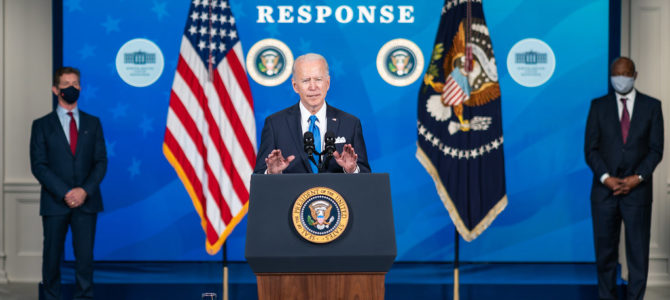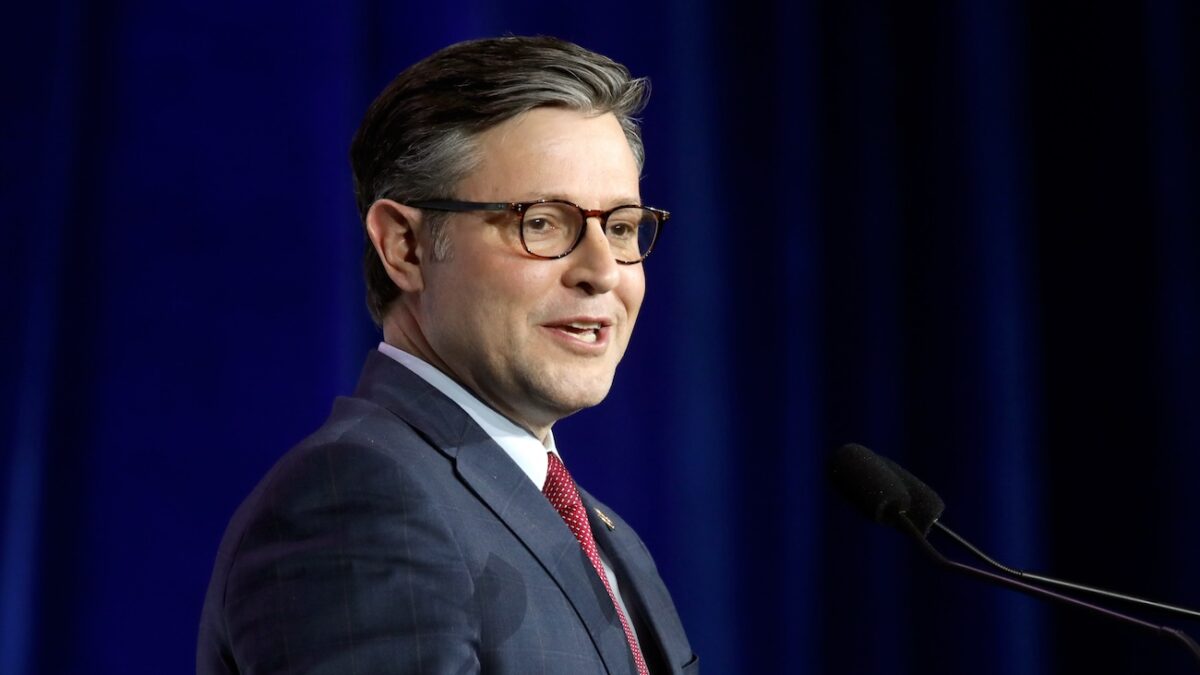
In one of the most overtly authoritarian orders imposed by a president in decades, Joe Biden issued a sweeping series of vaccine mandates on September 9, a move that could affect as many 100 million Americans. Under Biden’s rules, federal employees, employees of federal contractors, and Americans employed by a health-care facility receiving Medicare or Medicaid funding will all be required to receive a COVID-19 vaccine or submit a COVID-19 test each week.
Even more troubling, Biden’s order requires that all employees of private businesses with 100 workers or more must also comply with the vaccine mandate, regardless of the quality of existing safety measures, vaccination rates, or the proportion of the workforce that has obtained natural immunity. Businesses that refuse to comply with the new order will be fined $14,000 per violation, which means some larger businesses could theoretically be fined millions of dollars in just one week for failing to fulfill the terms of Biden’s order.
These demands issued by Biden, who had promised he would not mandate vaccines, are nothing short of an authoritarian power grab by a floundering president whose short time in office has been marred by one failure after another. The fact is, there is not one shred of evidence to suggest the Constitution provides the executive branch with the power to issue a national vaccine mandate, and no amount of fear-mongering will ever change that.
The Constitution lays out the powers granted to Congress and the president in Articles 1 and 2, and in neither section does the text indicate that regulating public health is a responsibility of the federal government.
Article 1, Section 8 does indicate Congress has the authority “To lay and collect Taxes, Duties, Imposts and Excises, to pay the Debts and provide for the common Defence and general Welfare of the United States,” but even in an extremely broad reading, this passage can only reasonably be interpreted to give Congress the power to tax and spend money on programs meant to benefit the nation, such as an interstate highway. The text here says nothing about giving Congress the power to restrict personal health choices.
Some have tried to claim that the Supreme Court has already determined that a vaccine mandate like the one issued by Biden is legal, but that is also completely false. The court decision that is nearly always cited as proof of this claim is a case from the early twentieth century called Jacobson v. Massachusetts. In that case, the Supreme Court upheld a Massachusetts law that allowed local governments to impose vaccine mandates on their populations. Those who failed to comply with the mandate could be fined $5.
In Jacobson, the Supreme Court ruled, “The authority of the State to enact this statute [a vaccine mandate] is to be referred to what is commonly called the police power — a power which the State did not surrender when becoming a member of the Union under the Constitution. Although this court has refrained from any attempt to define the limits of that power, yet it has distinctly recognized the authority of a State to enact quarantine laws and ‘health laws of every description;’ indeed, all laws that relate to matters completely within its territory and which do not, by their necessary operation, affect the people of other States.”
Notice that the Supreme Court in Jacobson is only examining a state’s authority to issue or permit vaccine rules and other public health mandates, not the federal government. This is a vital point, because the legality of Biden’s vaccine mandate hinges on the powers given to the federal government, not to state and local governments.
The Founding Fathers believed public health regulations, like most other policies, ought to be crafted at the state and local levels, a view clearly articulated in the 10th Amendment, which declares, “The powers not delegated to the United States by the Constitution, nor prohibited by it to the States, are reserved to the States respectively, or to the people.” Because Articles 1 and 2 do not indicate that regulating vaccines or public health is a power invested in the federal government, the right to make such rules is “reserved to the States … or to the people.”
When confronted with these arguments, the Biden administration has insisted it has the power under the Occupational Safety and Health Act of 1970 to force medium and large private employers to enact a vaccine mandate on the government’s behalf.
It is true that the act, which established the Occupational Safety and Health Administration (OSHA), includes maddeningly vague language about the federal government’s responsibilities under the law. But however vaguely defined OSHA’s powers are, they cannot ever be interpreted to supersede the Constitution, which remains, contrary to the actions of President Biden, the supreme law of the United States.
Because all federal statutes must be interpreted within the bounds of the Constitution, and because the Constitution does not give the federal government the authority to regulate public health issues like vaccines, instead reserving it for states and citizens, there is no legal basis for the claim that the Occupational Safety and Health Act grants President Biden the right to coerce people into getting vaccinated.
There’s a reason no president in American history has ever issued a national vaccine mandate like the one imposed by the Biden administration: it is apparent that such a rule is a clear violation of the Constitution’s Tenth Amendment provision, as well as a proper reading of Articles 1 and 2. Unfortunately, Biden doesn’t seem to care about upholding his oath to protect and defend the Constitution. It’s much more important for him to shift the focus away from his administration’s horrendous performance, no matter the cost.









